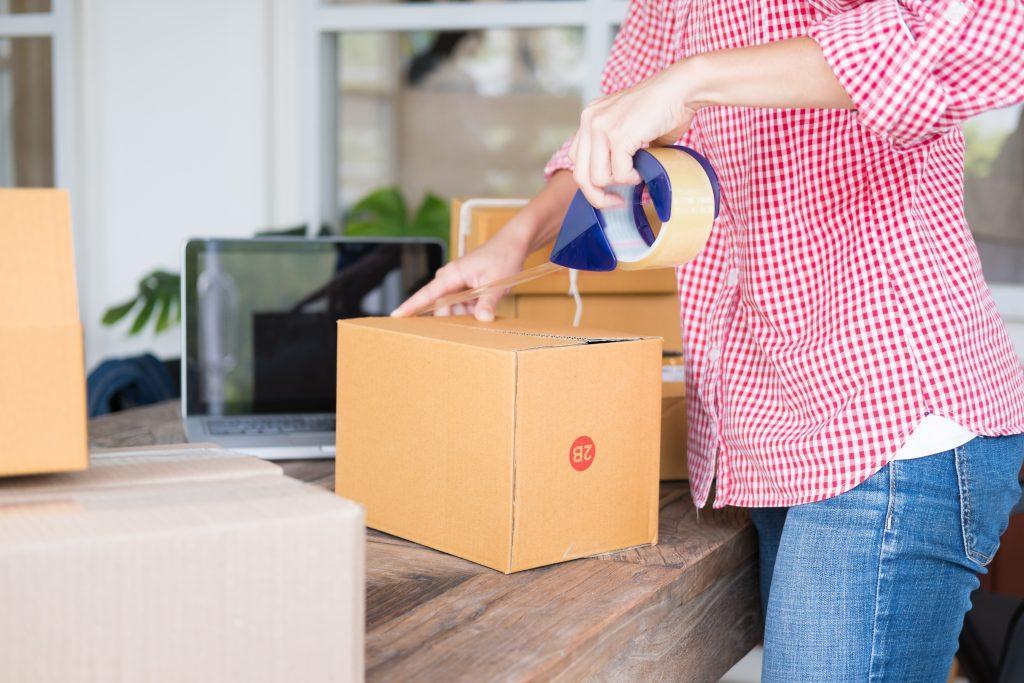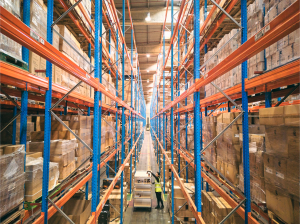Non-Union Scheme: what kind of animal is it?

VAT registration for non-Union scheme
VAT registration is a bit more complicated but again nothing to worry about. VAT registration has to happen if you store goods in another country of your company registration. The most common occurrence of this is obvious when one uses Fulfillment centres like FBA (Fulfillment by Amazon). So contrary to the previous situation, the registration has nothing to do with the sales threshold. Once you go over the sales threshold in one country you are liable for VAT everywhere in the EU. Reporting period varies from one country to another, but as it contains only domestic sales VAT reports it is not as excessive as in the country of incorporation. Some countries require you to appoint a Fiscal Representative if you are not incorporated or don’t have a fixed establishment in the EU.
The fixed establishment is between VAT and incorporation. You are liable for full accounting, unlike with VAT registration. You are required to register and pay income tax in that country. You will be considered to have a fixed establishment for example when you directly rent or own your own warehouse or other premises, or employ staff in the country.
IOSS is needed if you deliver goods valued below 150€, to customers in the EU from outside the EU. This is regardless of where you are registered, in the EU or outside of the EU.
Sales thresholds do not apply as VAT must be collected on all EU sales, IOSS is just the most customer-friendly and efficient way to do it. If you are incorporated or have a fixed establishment in the EU, the registration is simple: just register at your national tax office. If you are not incorporated in the EU or only have VAT registration, you have to appoint an Intermediary for IOSS.
Ok, it is a jungle, no denying it.
EAS helps you with all registrations and can act as an intermediary for IOSS users.
EAS also automates the tax reporting for your EU sales.
Get in touch with us, you’ll be fine!
Subscribe to newsletter
Top blogs
QuickBooks & EAS: Manage EU IOSS Compliance Easily
5 Ways to Optimise Your eCommerce Logistics
Have a talk with us about IOSS
Learn more about EAS compliance
More articles

How GPSR is Transforming Online Shopping
The General Product Safety Regulations (GPSR) ensure all products are safe for consumers, yet many online sellers remain unaware.
Implementing GPSR in e-commerce can enhance trust and drive sales, consequently boosting a seller’s reputation and customer loyalty in the competitive market.

European eCommerce 2024: Future Trends & Tips
In 2024, European eCommerce, especially in countries like Germany and France, is set to grow by 13%.
Like rivers converging into the ocean, regional e-commerce markets are seamlessly integrating.
This growth is driven by consumer trust, logistical advancements, and innovative payment technologies, culminating in an unprecedented e-commerce evolution across Europe, including the United Kingdom.
Change is on the horizon.

5 Ways to Optimise Your eCommerce Logistics
In eCommerce, efficient logistics operations are one of the most important ways businesses deliver a seamless shopping experience to customers. Optimising your business logistics can help streamline processes, reduce costs, and improve customer satisfaction, ultimately driving business growth and success for your online business.


